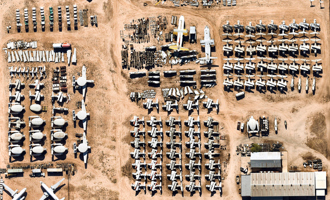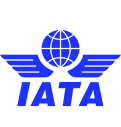Need Help?

More than 16,000 commercial aircraft have been retired worldwide in the past 35 years, and more recently, some 700 aircraft per year are reaching the end of their operational lives.The trend is growing -over the next 10 years around 11,000 aircraft retirements are expected. And COVID-19 even accelerated fleet retirement. Aircraft decommissioning is becoming a key process and has to be properly managed to avoid environmental and safety risks.
Need Help?
What airlines need to know
Aircraft decommissioning has economic, operational, regulatory, safety and environment implications. On the other hand, around 90% of aircraft parts can be reused or recycled, and components reusable as spare parts are high value.
This means that if undertaken in a timely and appropriate manner, aircraft decommissioning can allow recovery of a good residual value from re-used parts and recycled material, whilst minimizing environmental and safety risks.
Best Industry Practices for Aircraft Decommissioning (BIPAD)
Most airlines and other aircraft owners (e.g. lessors) have limited experience in managing aircraft decommissioning as a controlled process. This is why IATA developed guidance with a , providing guidance on managing aircraft decommissioning in a safe, economic, and sustainable way whilst meeting all relevant regulations.
IATA’s Best Industry Practices for Aircraft Decommissioning (BIPAD) manual is aimed at aircraft owners and operators and is thus complementary to the AFRA Best Management Practices (BMP) designed for specialized aircraft dismantling and recycling companies.
The BIPAD manual covers all phases of the aircraft end-of-life process:
- Decision to decommission an aircraft
- Selection of facilities
- Disassembly process
- Dismantling process
- Parts distribution and recertification
Training
The 2-day Aircraft Decommissioning Training provides guidance on business processes, operational experiences and best practices in the industry, reinforced with exercises, discussions, and role play to equip you with the knowledge to optimize the residual value from aircraft decommissioning.
Professional expertise with IATA Consulting
Aircraft owners and operators increasingly realize that they can benefit from recycling aircraft parts in addition to minimizing environmental and safety risks. We can assist airlines and aircraft owners in the process of retiring aircraft from service by applying best practices throughout the entire cycle of aircraft decommissioning.
Find out more about our aircraft decommissioning consulting services.
